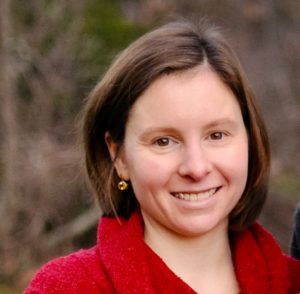
Emily Lescak, PhD
How did you get involved with NRMN?
I first got involved with NRMN when I attended a workshop on implementing institutional mentor training at the National Postdoc Association Meeting in 2016.
Which of NRMN’s program(s) have you participated in?
I have participated in three trainings on implementing institutional mentor training and mentoring undergraduates. I have also been a mentee in the Guided Virtual Mentoring program and am now registered as a mentor.
Have you participated in other similar programs in the past? If so, how was your experience with NRMN different or unique?
I have been a mentor for the New York Academy of Sciences (NYAS) Next Scholar program as well as my university’s Emerging Leaders Program. The Next Scholar program is similar in that it is a virtual, guided experience, but it specifically matches undergraduate students with more senior mentors. The Emerging Leaders Program also matches undergraduates with faculty or staff, but doesn’t provide the same type of structure and training that NRMN or NYAS do. What I like about the NRMN training is that mentors and mentees are taught communication strategies that allow for meaningful reflection on goals and given specific prompts for initiating conversations that are important for helping mentees articulate their goals.
If someone called you and asked, “Why should I become involved with NRMN?” how would you respond?
NRMN provides valuable training to improve mentoring and communicating with early career scientists and helps mentors and mentees set achievable goals that will prepare mentees for further education and the next steps in their careers. The MyMentor platform is a great opportunity for early career scientists to expand their mentoring networks and get research, career, and professional development advice from experts outside of their institutions.
How has your experience with NRMN changed the way you approach your career in the sciences?
NRMN emphasizes the importance of training and mentoring early career scientists and, importantly, provides mentors with the skills they need to mentor in a meaningful way. The trainings that I have completed have enhanced my ability to communicate with students about their goals and progress and our expectations for working together.
Describe a project or accomplishment that you consider to be the most significant in your career.
Earning a PhD is my most significant career accomplishment. I am fortunate and grateful to have had the opportunity to work with talented collaborators and supportive committee members. Our work has resulted in a series of papers that I’m really proud of that describe rapid evolution in threespine stickleback fish on uplifted islands in Alaska. It was challenging because I had to learn to balance my research obligations with coursework and mentoring students, and was constantly applying for funding to cover supplies, travel, and my salary. While working toward my PhD, I also moved twice, got married, and had a baby, all while living thousands of miles away from my extended family. These life events meant that I had to learn to work as efficiently as possible.
What makes you an ideal mentor?
I genuinely care about my mentees and helping them to reach their educational and career goals. I cultivate a culture of respect and value their achievements. I take the time to regularly participate in professional development that enhances my communication and mentoring skills. I can demonstrate to mentees that it is possible, and important, to balance work with family life.
Each morning, what do you look most forward to in the day?
Aside from enjoying a good cup of coffee and spending time with my family, I look forward to opportunities to work with talented colleagues and students and make progress on research and creative projects.
Is there anything you’d like to share about yourself with a potential future mentee?
One of my primary goals as a mentor is to help mentees navigate the scientific training process. It’s not a straightforward path and it requires early career scientists to make a lot of important decisions about who to work with, how to get funding, and how to design a research project.
What is your current position?
I am currently a postdoc at the University of Alaska Anchorage. My favorite aspect is being able to train and mentor students. It’s really satisfying to help students gain confidence in themselves as they master new techniques and celebrate achievements.
Anything else that you would like to share?
I think that the virtual mentoring platform plays a vital role in helping scientists to create mentoring networks, particularly for scientists who are in remote areas and have fewer opportunities to interact with large scientific communities.